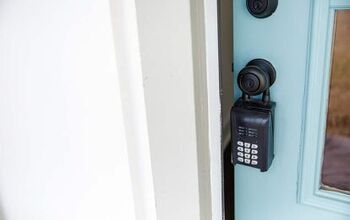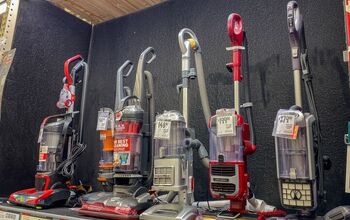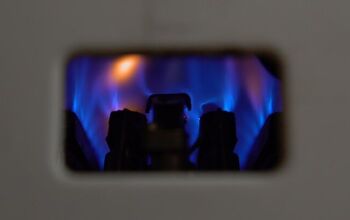Gas Stove Smells Like Propane When It's Off? (Do This!)

Compared with several other options for heating a home, propane can be considered a reasonably safe and cost-effective fuel source. No wonder so many homeowner’s opt or a propane stove over an electric one. However, some people notice that their stove smells like propane even when it’s off.
When you smell propane while your stove is off, it usually means that there is a propane leak. It is still essential to know how to recognize and handle a leak of propane gas. You will need to take the proper steps to ensure the safety of you, your family, and household pets.
Are you familiar with the odor of propane? Supposing you suspect you can smell gas – what is the next step to take? if not, don’t worry. This article will help to walk you through the steps that you should take upon smelling propane while your propane stove is turned off.
Do You Need Appliance Repair Services?
Get free, zero-commitment quotes from pro contractors near you.

Propane Can Be Dangerous
Propane has many safety advantages:
- It’s non-toxic
- Won’t ignite at temperatures less than 920 degrees Fahrenheit
- It doesn’t harm soil or even groundwater.
However, the fact remains that it is a flammable gas, and even the smallest spark can cause ignition, resulting in property damage or even worse. If you smell propane, inside or outside your home, take the matter very seriously.
Checking Your Stove
If you smell propane and all your burners are in the ‘OFF’ position, you should check the connections on your stove. If the connections are all secure, and your propane tank is full, then it’s safe to assume that you have a propane leak.
Sometimes when your tank is nearly empty you will smell the last of the propane dumping out. This is not a cause for concern. However, if the smell grows more powerful as time goes on, or doesn’t go away, then it’s an indicator that there’s something more serious going on.
Recognizing The Smell Of Propane
Propane has a powerful and unpleasant smell, similar to that of rotten eggs, or the spray of a skunk. Manufacturers deliberately add these scents to aid users in becoming aware of leaking gas, which is, of course, a significant safety hazard. If there is propane in the vicinity in the case of any such foul odor, you must always act immediately.
First, ensure that the unpleasant odor is propane and not from any other origin, such as:
- Garbage
- Sewage
- Skunk spray
- Dead vermin
If the odor is faint, it may not be necessary to be alarmed. Sometimes a slight smell of propane can remain even after a stove is lit. Other causes could be a pilot light in a gas fireplace or the pilot light of a water heater has been extinguished.
Any possible gas leak should be taken seriously. Take special care and immediate action if:
- The odor is incredibly strong
- It doesn’t go away
- It is accompanied by a hissing sound.
If You Smell Gas
The first rule is: do not permit anything with flames or sparks to be used. Remove and extinguish all smoking materials as well as other flames such as candles. Also, don’t switch on equipment that could spark or give off an electrical charge. This doesn’t only mean lighters and open flames.
Be careful with everyday items such as:
- Rotary phones
- Electrical switches
- Doorbells
- Heating thermostats
A spark from any of these could trigger an explosion or a major fire.
Actions To Take
- Ensure you and those near you leave the area without delay. If the odor is inside the home, get everyone out immediately.
- When the smell of gas is outdoors, move away from the area. Use the same precautions about sparks and flames. Vehicles and outdoor electrical equipment can also present a safety risk. Move everyone to a safe distance, on foot, and don’t try to identify or resolve the issue yourself.
- Turn off the main gas supply valve on the propane tank. Only do so if it’s safe for you to take this action. To shut the valve, turn it clockwise.
- Without delay, report the gas leak to the relevant authorities. Do this from a neighbor’s house or another location nearby. Call your local propane retailer immediately. If they’re not reachable, contact 911 or the fire department.
- Under no circumstances return to your property. Wait until it has been checked and declared safe by the propane seller, the emergency response team, or a qualified gas service technician has given the all-clear.
- Wait for a professional. Before using any of your propane equipment, a propane retailer, or a qualified gas service technician will need to check your complete installation to ensure that the system is leak-free.
If You Detect A Gas Leak
Without delay, evacuate the entire household and call your propane supplier or the fire department from a neighbor’s phone. Familiarize yourself with the smell of propane. Propane suppliers offer scratch-and-sniff cards to assist your family in identifying its special odor.
Also, always make sure you call 811 before you excavate. It’s important to know where gas lines are situated to avoid damaging them when you dig in the yard.
Can You Smell It?
Certain people may find it hard to smell propane, possibly because:
- They have colds, allergies, sinus congestion, etc.
- A reduced sense of smell due to tobacco, alcohol, or drug use.
- The scent is masked by tobacco smoke, cooking smells, or strong odors.
- Older people tend to have a reduced sense of smell
- When propane is present for a period of time, the fragrance is no longer detected.
- The propane odor may be in a part of the building which is not frequently visited.
- Odor loss can occur – that is, the smell of the propane itself weakens over time.
If you are worried that you or those around you may find it difficult to detect the smell of propane, think about installing one or more propane detectors.
Stay Safe And Know The Risks
No-one doubts that propane fumes can be hazardous. However, serious leaks rarely occur, and they usually only happen after long term neglect of the condition of the tank or heating system. It is wise to invest in professional maintenance by professional technicians.
Educate Your Children
It’s vital that kids understand the basics of gas safety. For a fun way of helping them be aware, try PropaneKids.com—it’s a cool, interactive site with games and activities to encourage kids to follow good propane safety habits.
It even has a resources section with downloads such as home safety inspection checklists, safety lesson plans, and coloring pages, reinforcing good propane safety habits for the whole family!
Related Questions
Do You Need Appliance Repair Services?
Get free, zero-commitment quotes from pro contractors near you.

Play It Safe

Heather is a passionate writer who loves anything DIY. Growing up, she learned everything from home repairs to design, and wants to share her tips with you. When she's not writing, she's usually hiking or searching for her next DIY project.
More by Heather Robbins



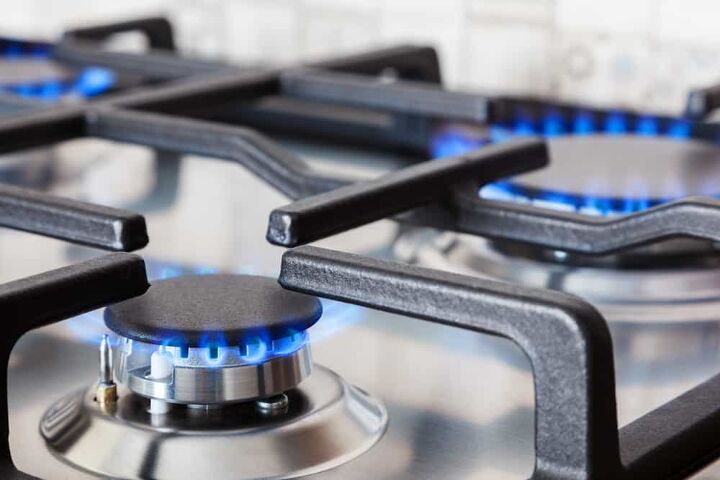






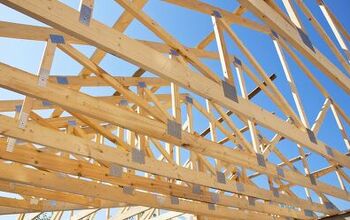



![The 10 Best Table Saws - [2022 Reviews & Buyer's Guide]](https://cdn-fastly.upgradedhome.com/media/2023/07/31/9070645/the-10-best-table-saws-2022-reviews-buyer-s-guide.jpg?size=350x220)

